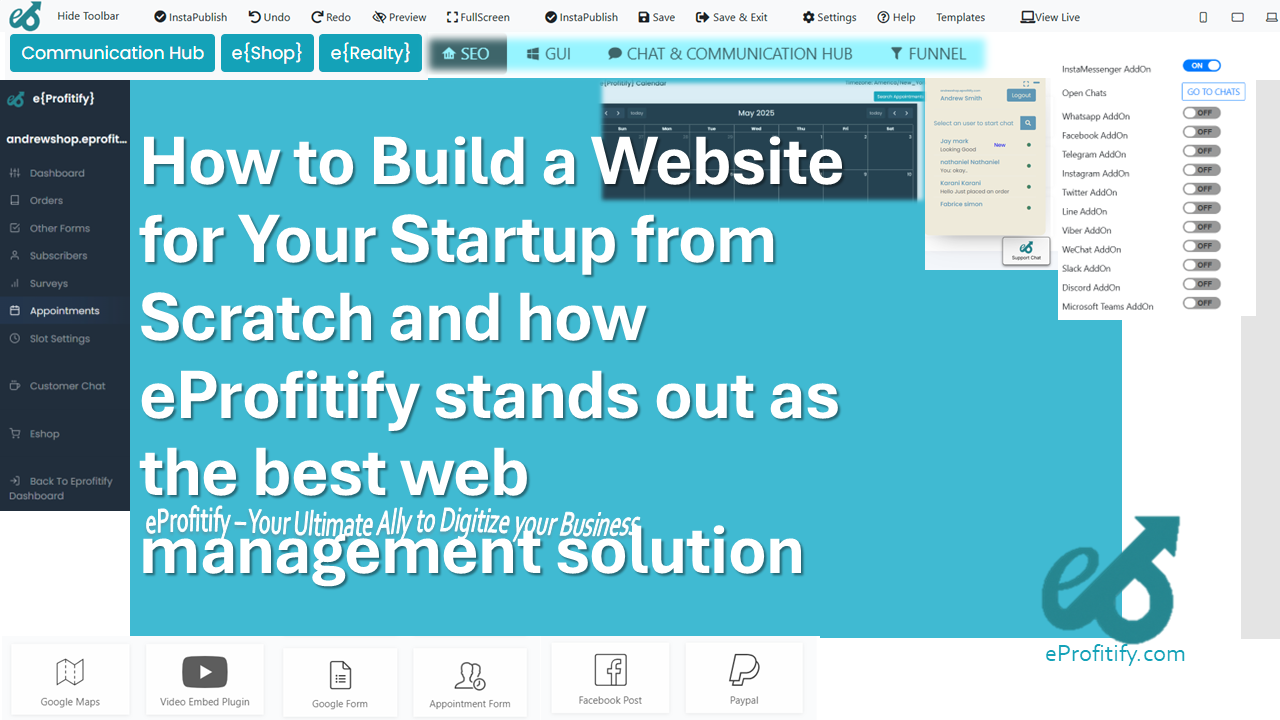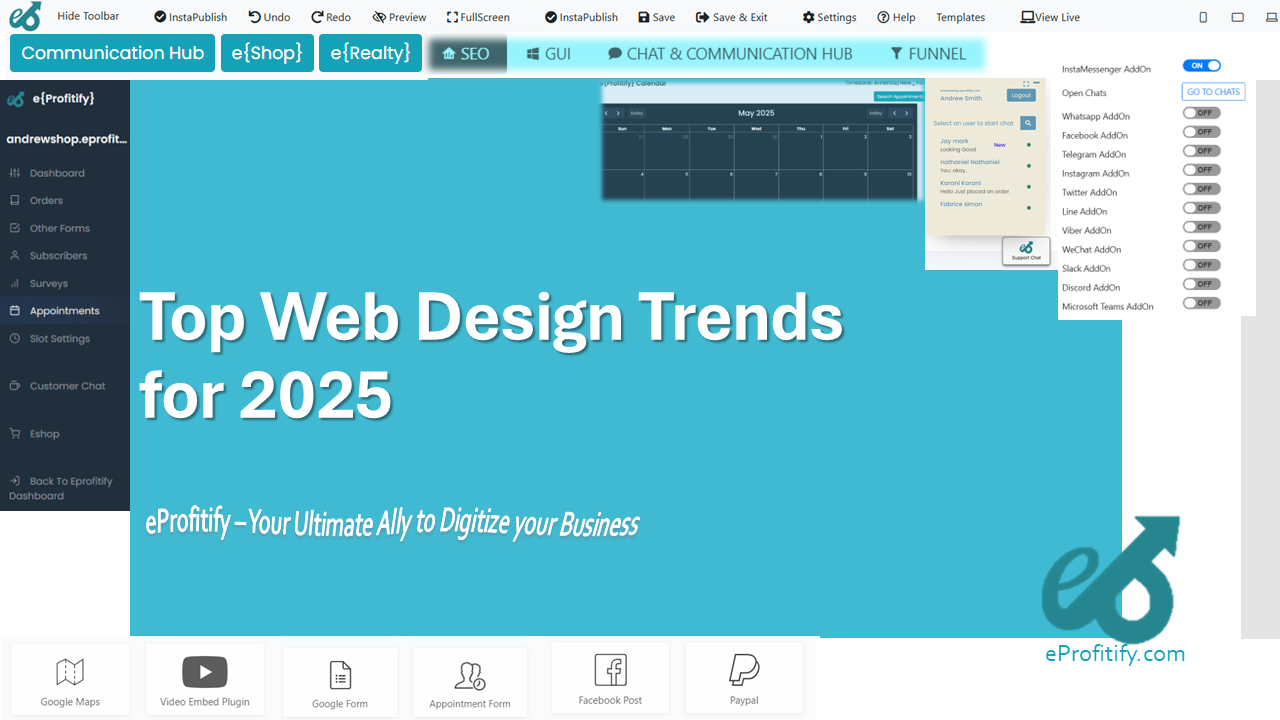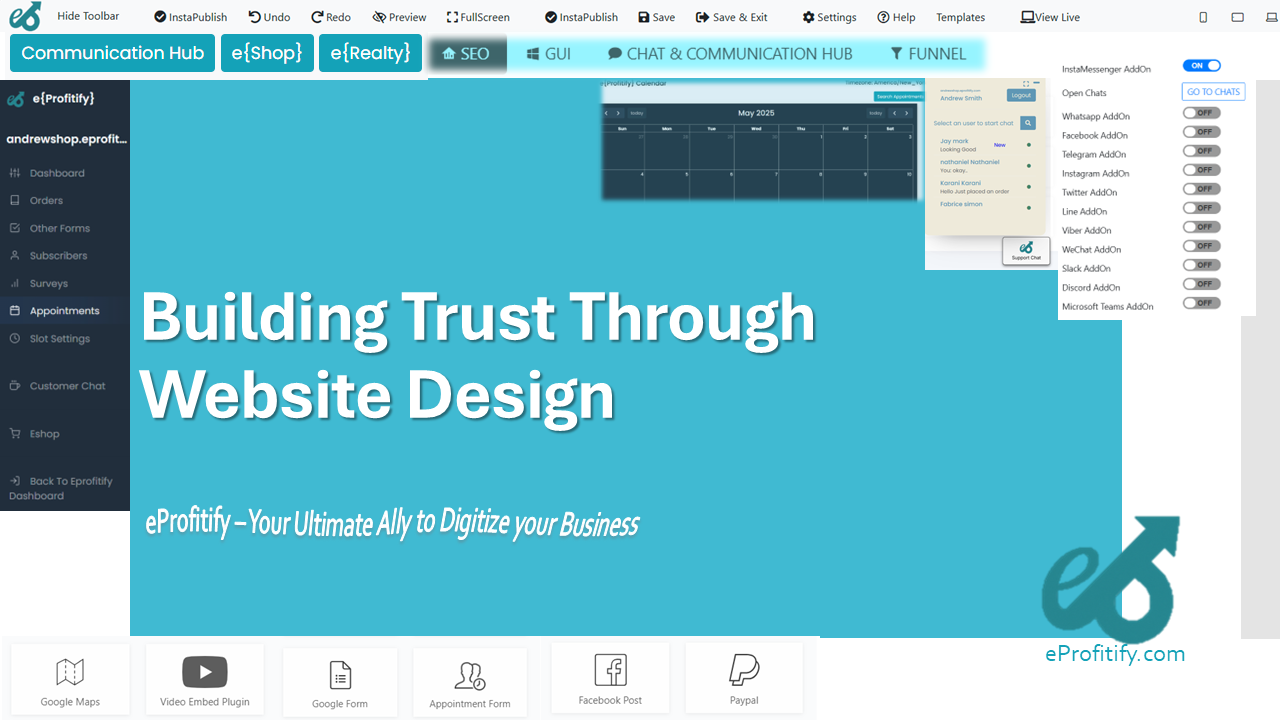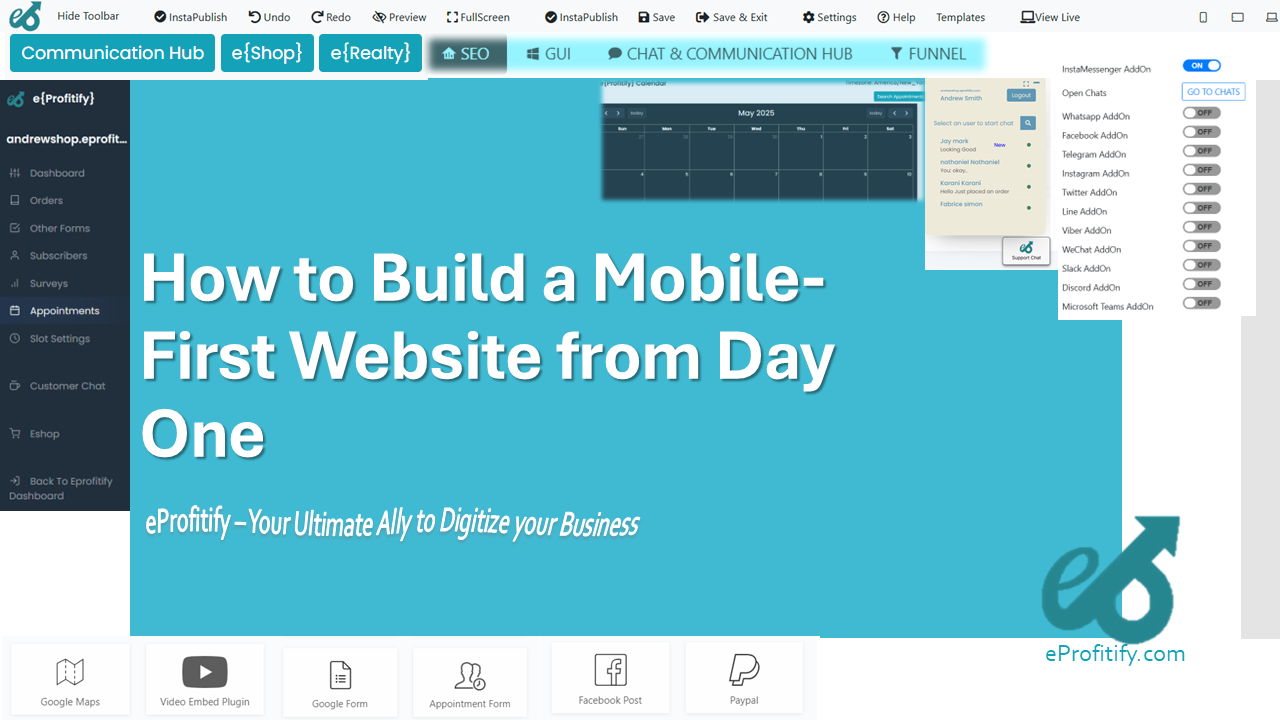What Every Founder Should Know About Web Security
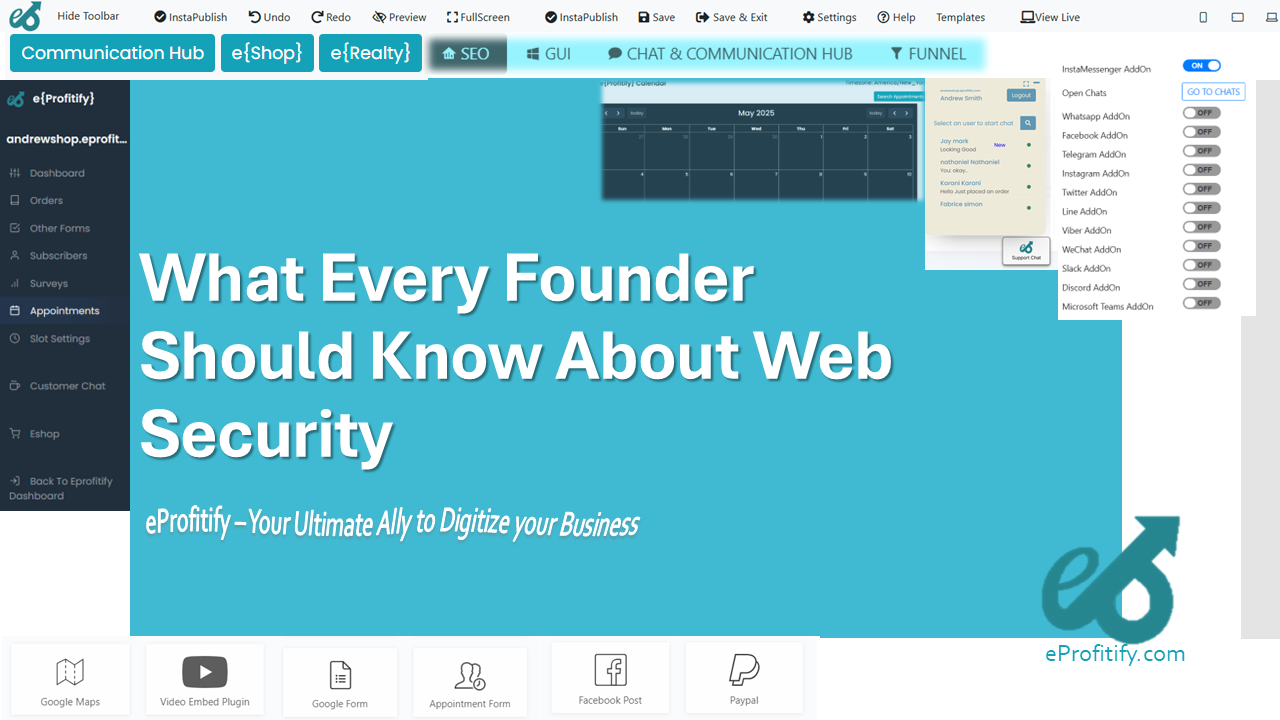
What Every Founder Should Know About Web Security
And How Eprofitify Can Help You Stay Protected
In today’s digital-first world, web security is no longer optional for businesses—it’s a necessity. For founders, understanding the risks, implementing safeguards, and complying with regulations can mean the difference between sustainable growth and catastrophic failure. With cyberattacks growing in sophistication and frequency, startups and established businesses alike must prioritize security from day one. In this guide, we’ll explore critical web security insights, backed by statistics, and highlight how tools like Eprofitify—a leading website publishing and management platform—can streamline security while empowering your business operations.
The High Stakes of Ignoring Web Security
Statistics Don’t Lie
- The average cost of a data breach reached $4.45 million in 2023, a 15% increase over three years (IBM).
- 83% of organizations experienced more than one breach in 2022, with 60% of small businesses shutting down within six months of a cyberattack (Cybersecurity Ventures).
- Human error, such as misconfigured servers or weak passwords, contributes to 74% of breaches (Verizon Data Breach Report).
These numbers underscore a harsh reality: cybersecurity isn’t just an IT issue—it’s a business survival imperative. For founders, investing in robust security measures minimizes financial losses, preserves customer trust, and avoids regulatory penalties.
Common Web Security Threats Founders Must Understand
1. Phishing & Social Engineering
Phishing attacks, where hackers impersonate trusted entities to steal data, account for 36% of breaches (Verizon). Employees are often the weakest link, clicking malicious links or sharing credentials.
2. Cross-Site Scripting (XSS) and SQL Injection
These coding vulnerabilities allow attackers to hijack user sessions (XSS) or manipulate databases (SQLi). Over 50% of web applications have critical security flaws, highlighting the need for secure development practices (OWASP).
3. Distributed Denial-of-Service (DDoS) Attacks
DDoS attacks overwhelm servers with traffic, causing downtime. In 2023, DDoS incidents rose by 55%, with 35% targeting small businesses (Cloudflare).
4. Outdated Software
Unpatched systems are low-hanging fruit for hackers. The 2017 Equifax breach, which exposed 147 million records, resulted from an unpatched Apache Struts vulnerability. Gartner estimates that 99% of exploits target known vulnerabilities.
Compliance: Legal Obligations You Can’t Afford to Ignore
Global regulations like the GDPR (Europe) and CCPA (California) impose strict rules on data handling. Non-compliance can lead to fines up to €20 million or 4% of global revenue (GDPR) or $7,500 per intentional violation (CCPA). In 2023, Meta was fined a record €1.2 billion for GDPR violations.
Founders must ensure:
- Data encryption in transit and at rest.
- Transparent privacy policies.
- Prompt breach notifications (72 hours under GDPR).
Web Security Best Practices for Founders
1. Use HTTPS & SSL/TLS Encryption
SSL certificates encrypt data between users and your site. Google Chrome flags non-HTTPS sites as “not secure,” eroding trust.
2. Regular Updates & Patch Management
Automate updates for CMS platforms, plugins, and servers. For example, outdated WordPress plugins are a common attack vector.
3. Role-Based Access Control (RBAC)
Limit employee access to sensitive data. The 2023 Okta report found that over 50% of companies lack proper access controls, increasing insider threat risks.
4. Multi-Factor Authentication (MFA)
MFA blocks 99.9% of account compromise attacks (Microsoft). Enforce it for admin accounts and customer logins.
5. Backup & Disaster Recovery
Daily backups stored offsite ensure quick recovery from ransomware or data loss.
How Eprofitify Simplifies Web Security & Management
Building a secure web infrastructure from scratch is daunting, especially for non-technical founders. This is where Eprofitify—a comprehensive website publishing and management platform—shines. Designed to integrate security into every feature, it empowers businesses to focus on growth while minimizing risks.
Key Features Supporting Security & Efficiency:
- Secure Hosting & SSL Integration: Eprofitify offers built-in SSL encryption and enterprise-grade hosting, eliminating the need for third-party certificates.
- Role-Based CRM & Access Controls: The platform’s CRM includes RBAC, ensuring employees only access data relevant to their roles.
- PCI-Compliant Ecommerce: Securely process payments with integrated gateways and automatic PCI-DSS compliance.
- Encrypted Instant Messaging: Protect customer communications with end-to-end encryption.
- Automated Updates: Eprofitify handles software patches, reducing vulnerability risks.
- Appointment Management System: Safeguard customer data with encrypted booking forms and calendar integrations.
Beyond security, Eprofitify streamlines operations with SEO tools, analytics dashboards, and marketing automation—making it a one-stop solution for startups and scaling businesses.
Final Thoughts
Web security is a foundational element of modern entrepreneurship. Founders must stay informed about evolving threats, adopt proactive defenses, and leverage tools that simplify compliance. Platforms like Eprofitify not only harden your security posture but also enhance productivity through integrated management features. By prioritizing security today, you protect your business’s future—and build a brand customers can trust.
In a world where 95% of cybersecurity breaches stem from preventable human or technical errors (World Economic Forum), the right tools and knowledge are your strongest armor. Start securing your digital journey with Eprofitify, and turn web security from a challenge into a strategic advantage.




